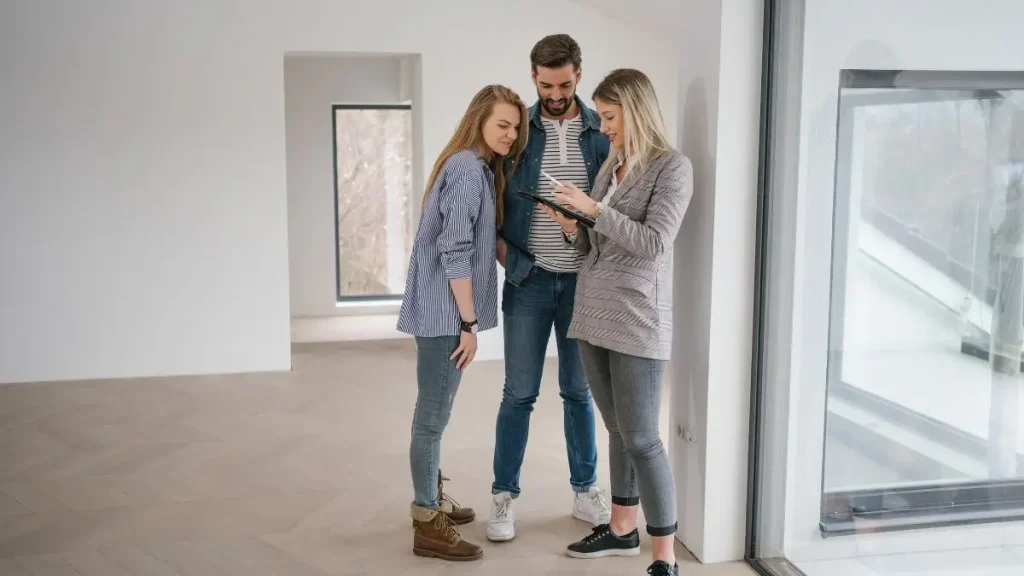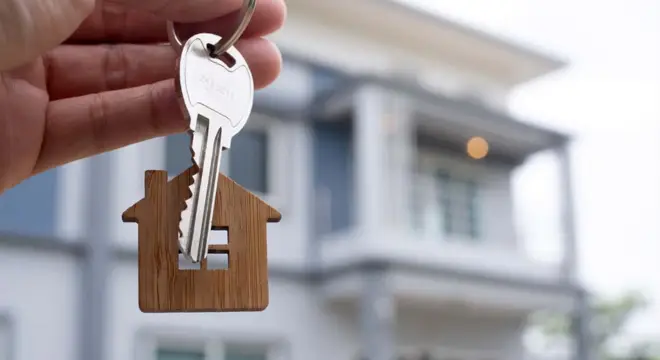Thinking of Buying a House With a Friend? Here’s What You Should Know
I remember sitting with a few of my friends a couple of years ago, just talking about how impossible it felt to keep up with skyrocketing rents and home prices. Before we knew it, the conversation had shifted from complaints to real solutions: what if we bought a house together?
Buying a home with a friend can feel like a secret hack for affordability. Suddenly, the down payment, mortgage, and upkeep aren’t crushing you alone—they’re shared. I’ve seen people who could never qualify for a home on their own take this step and make homeownership a reality.
In fact, reports found that about one-third of people who successfully bought a home with a friend cited affordability as the main reason—and almost half of prospective co-buyers agreed it made buying more doable.
But it’s not just about money. Living with someone you trust can make life easier, but it can also test your patience in ways you never imagined. Sharing a financial commitment means sharing responsibility, and that can strain even the closest friendships if you’re not prepared.
Before you jump in, think about why this appeals to you. Is it purely financial, or do you genuinely want to build a home and life alongside someone you trust? Understanding your motivation upfront will guide every decision you make—from choosing the right property to setting up rules that protect your friendship and your finances.
Buying with a friend isn’t for everyone—but when done thoughtfully, it can open doors you never thought possible.
Why People Consider Co-Buying?

I’ve seen plenty of people who simply couldn’t afford a home on their own decide to team up with a friend. And here’s the data to back it up: according to a recent Zillow survey, 33% of successful co-buyers said affordability was their top reason for buying with someone else, and 45% of prospective co-buyers agreed that co-owning made it more achievable.
Sharing a mortgage and other costs makes a big difference. Suddenly, what seemed impossible becomes doable. But money isn’t the only motivator. Many people also value companionship, shared responsibility, and the ability to make a home together without relying on roommates they barely know.
For you, this means thinking beyond numbers. Ask yourself: do you want shared financial relief, or are you looking for a partner to build a life with in this home? Understanding your “why” will help you make better decisions and avoid future conflicts.
Understanding the financial side of buying a starter home can help you see why co-buying might make sense.
Financial Considerations and Shared Responsibility
Here’s where it gets real: co-buying affects your entire financial life. When you take a mortgage together, you’re jointly responsible for the loan. If your friend misses a payment, it can hit your credit score and increase your debt-to-income ratio, which affects future loans, credit cards, or even car financing.
It’s also not just the mortgage. Maintenance, repairs, utilities, and unexpected expenses all need a plan. Some friends split everything 50/50, others divide costs by unit size or bedroom. The important thing? Decide on it early and put it in writing.
Transparency is key. You and your friend need to share information about income, debts, and spending habits. It might feel awkward, but it’s far better than discovering financial surprises down the road.
If you want quick tips and updates on co-buying, mortgage hacks, and property insights, there’s a handy WhatsApp channel that shares bite-sized advice for homeowners—you can check it out anytime.
Lifestyle, Cohabitation, and Conflict Management
Even if you’re financially compatible, living together brings its own challenges. How you handle chores, noise, renovations, or shared spaces can make or break your friendship.
You and your friend had no formal legal agreement, but you did have clear house guidelines—everything from preferred bedtimes to shared meals. Your friendship and trust kept it working, but that’s not always enough. You’ll want a combination of written agreements and open communication.
Ask yourself honestly: can you resolve disagreements respectfully? Do your routines and habits align, or will you constantly need to negotiate laundry days and bathroom schedules? Cohabitation is a stress test for any friendship, and it’s better to be prepared.
Before taking on a mortgage together, it’s wise to know whether home insurance is compulsory for your purchase—it can save you surprises later.
Legal Arrangements and Protecting Your Interests

Before you sign anything, I can’t stress enough how important it is to have legal protection. Co-owning a home with a friend isn’t just about sharing a mortgage—it’s about safeguarding your friendship and your finances.
Start with a co-ownership agreement. This should clearly outline each person’s financial contributions, decision-making authority, responsibilities for maintenance, and exit strategies. It’s not the most exciting paperwork, but it can save you a lot of stress later.
Next, understand ownership structures. Are you going joint tenancy or tenancy in common? Each has different rules for selling, inheritance, and liability. Consult a real estate attorney to make sure you’re choosing what works best for your situation.
Practical takeaway: Treat this like a business partnership. Friends make the best co-buyers when there’s a legal framework that protects everyone.
Questions to Ask Before Buying With a Friend
Buying a house with a friend is full of what-ifs. Asking the right questions upfront will save you headaches—and possibly a friendship.
- How will you split the down payment, closing costs, and ongoing expenses? Equal shares aren’t the only option—you can divide by room size or usage.
- Who covers repairs, improvements, and utilities? Consider creating a Home Maintenance Fund.
- What happens if one person wants to move out? Discuss buyouts, refinancing, or selling the property.
- How will disputes be handled? Put processes in writing for chores, renovations, and shared spaces.
- Can your friendship withstand financial stress? Money can amplify small disagreements—be honest about your expectations.
These questions aren’t just theoretical—they reflect real challenges people like Alecia faced. Preparing answers ahead of time keeps the process smooth and preserves trust.
And if you want to avoid common mistakes that first-time buyers often make, check out these 5 smart dos and don’ts for 2025.
How to Navigate Conflicts and Differences?
No matter how close you are, disagreements will happen. The difference between a smooth co-ownership and a nightmare is how conflicts are resolved.
Start by creating house rules together. Alecia and her friend outlined everything—from bedtimes to shared meals—which prevented small annoyances from turning into major fights.
Next, always communicate openly. If one person wants a renovation or improvement, discuss finances and priorities before making decisions. Written agreements help, but daily respect and dialogue are just as crucial.
Finally, remember life changes. Careers, relationships, or family growth can affect plans. By planning for flexibility and being willing to compromise, you can navigate these changes without destroying your friendship—or your finances.
Tip: Treat the home like a joint venture, not just a living space. Respect boundaries, responsibilities, and each other’s space.
Quick Tips for Successful Co-Buying
Here’s my no-nonsense list for anyone considering this path:
- Trust is everything. Without mutual trust, money problems will strain the relationship.
- Be transparent about finances. Share income, debts, and spending habits upfront.
- Put it in writing. Agreements, rules, and exit plans protect both parties.
- Plan for life changes. Job moves, relationships, or children can impact co-ownership.
- Think about space. Separate units or shared rooms affect privacy and harmony.
- Consult professionals. Attorneys, real estate agents, and financial advisors make the process smoother.
At the end of the day, buying a home with a friend can be incredibly rewarding if done thoughtfully. Ask yourself: are you ready to commit to both the property and the friendship?
If you’ve ever thought about co-buying a home with a friend, what’s your biggest concern—money, friendship, or logistics? Share your thoughts—I’d love to hear your perspective.
For more practical tips on buying and maintaining your home, check out our Homeownership Guides for expert advice and step-by-step strategies.
Disclaimer: This article is for informational purposes only and does not constitute legal, financial, or real estate advice. Always consult a qualified professional before making major financial or property decisions. Individual circumstances may vary, and results are not guaranteed.


